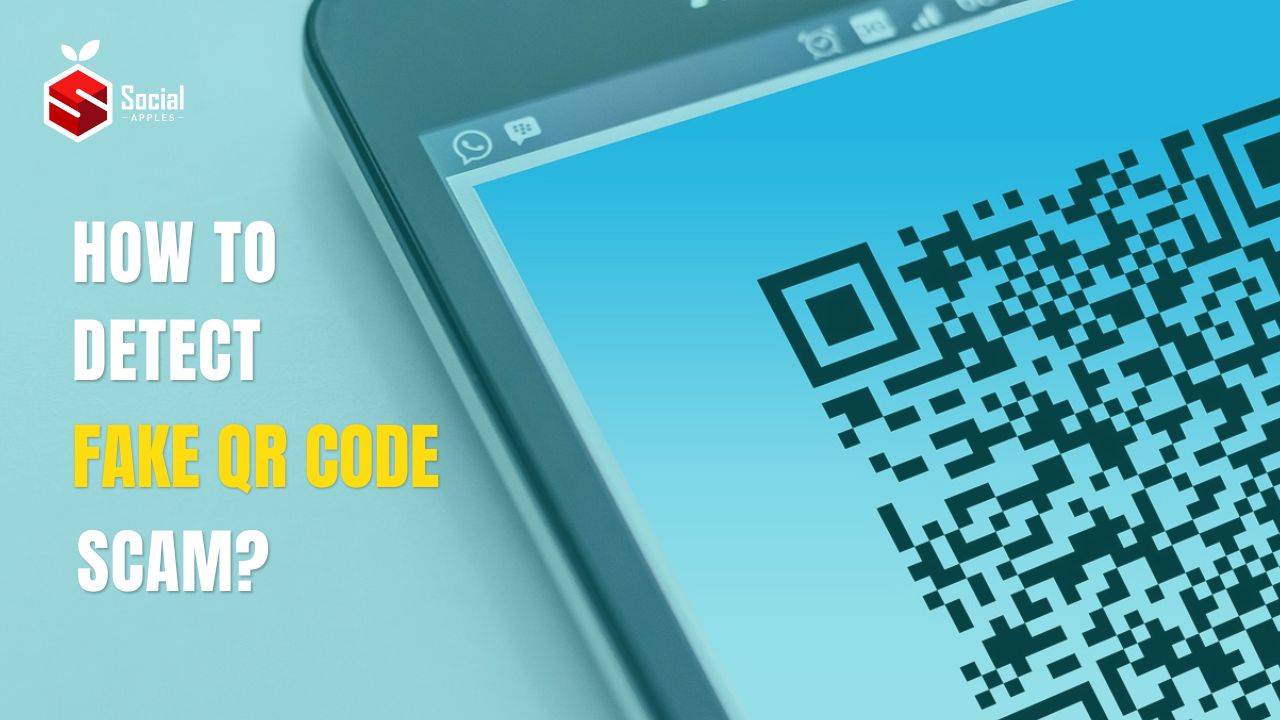In today’s time, QR codes have become extremely common. You can find them on payment gateways, restaurant menus, public spots, and more. On the other side, there also has been a rise in different QR code scams.
So the question is, how to detect a fake QR code scam? And what are the usual QR code scams to know and avoid?
To help you with these questions, here is a brief explanation:

Contents
How Do QR Scams Work?
These days, creating and scanning QR codes have become extremely easy. However, there are some dangers of QR code scanning, and as a result, fraudsters are coming up with new and creative ways to scam people.
In a QR scam, fraudsters’ primary objective is to trick users into scanning a malicious QR code that leads to a fake website or installs malware on their website.
Hence, security experts suggest users avoid scanning unknown QR codes.
How to Detect a Fake QR Code Scam in 2024?
1. Fake QR Code Scams In Phishing Emails
One of the common QR code scams is phishing emails. Many users reported getting fake payment failed emails from popular e-commerce websites like Amazon, Walmart, eBay, and others. The mail often reads that there is a failed payment, and the user can retry the payment method using the displayed QR code.
However, these emails or QR codes aren’t affiliated with any websites you know. But they are linked to scam websites, and if you pay the bill using the QR code, you will only lose your money.
To avoid such scams, you must verify where the email is coming from by looking at the email address. Alternatively, you can sign into the website and check your order history.
2. QR Code Viruses
Hackers can inject malware into your PC using QR codes. Hence, it is essential to be extra careful while scanning them.
Fraudsters can link QR codes to spam websites or webpages containing viruses and other malware. And when you scan a QR code and visit those web pages, there is a chance that your device might get infected with viruses, malware, or keylogger to your device.
As a result, the hacker can steal private information, monitor your activities, and harm you differently.
Hence to avoid such scams, you should prevent scanning random QR codes. Also, make sure to check the source of the QR code.
3. QR Payment Fraud
Another common QR code scam is tampering with QR codes. You would often find QR codes placed at locations where online payments are made, such as Gas stations, restaurants, parking lots, etc.
Frauderstars replace the QR codes with their own, and when you make a payment, the payment goes to the scammer, not the actual vendor. As a result, you end up losing money.
Hence, you should check the QR code thoroughly. Like if it’s torn or tampered with in any other way. Or there is a QR code placed above a QR code. If you find anything suspicious, choose a different way of payment or ask the respective vendor for the correct payment details.
4. QR Codes On Unknown Packages
Fraudsters often send unknown packages to different users with a QR code. To make them scan the QR code, they use phrases like To return the package, scan this QR code. To win this, scan this QR code or any other phrase.
The fraudster’s primary goal is to make you scan the QR code. And when you finally do it, they can install keyloggers or infect your device with viruses or malware. Alternatively, they can ask for personal or payment details to offer you a refund or register a return.
So if you receive any unexpected or unknown package with a QR code in your mail, avoid scanning it. Instead, you should check where the box came from. It will probably have an address and other details.
5. Fake Discounts Or Rewards
You might see an advertisement online or offline about a discount or reward that is too good to be true. Once you scan that QR code, you will lead to a fake website where you will be asked to enter your personal information and payment details.
So you can receive your discount or reward. But in reality, your credit card will get charged a hefty amount, and you will lose your money to online fraud.
To avoid such scams, check the website to see if it’s legit. You can visit websites like TrustPilot to check its reviews if you find an unknown website. If there is none, it’s probably a fake website.
Conclusion
So those were a few common ways to detect a fake QR code scam. In short, you should avoid scanning any unknown, tempered, or suspicious QR codes. Do not share your details or payment info even if you scam them.













